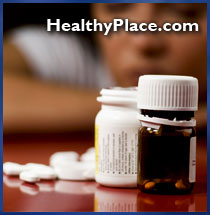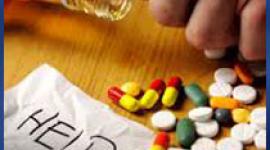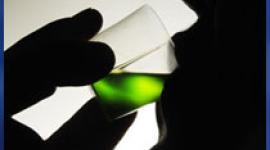Do Antidepressants Work?
Stanton,
 Do you think that the whole seratonin transmitter thing is totally wrong regarding depression? I have suffered from depression for at least thirty years. And I've been through therapy, AA and whatever else I could do to self help myself. What a bunch of crap!
Do you think that the whole seratonin transmitter thing is totally wrong regarding depression? I have suffered from depression for at least thirty years. And I've been through therapy, AA and whatever else I could do to self help myself. What a bunch of crap!
Modern antidepressants work for me and although I don't like being a human guinee pig I prefer these pills to that wretched state of mind. Anything is better then that! William Styron describes his depression quite well although he didn't experience depression until he was in his sixties. His book, written in the 80's is called Darkness Visable. Although I've been going through depressions for many years I like Styron's descriptions. Good writing.
Are you a social scientist without even a thought to harmones or brain chemistry. I don't like genetics being used as an excuse for behavior. And I certainly don't buy the twinkie, prozac, maniac defense. I hope you are more openminded then someone who discounts brain chemistry in favor of psychology. I hope you are just trying to cut thru the whole criminal, excuse, and moron team. I agree if that is your intent.
PMS is real, and so is menopause. Do you think that all of our problems stem from our upbringing? If so, why do antidepressants work for me? I can talk until...forever but antidepressants work for me better.
LF
Dear LF:
You seem to want to have me okay your antidepressant use — but there is someone whose position on the matter might cause you even more discomfort — William Styron. Although he was highly committed to believing his depression was a preordained biological disease, he was virulently anti antidepressants (meaning they did nothing at all for him). Basically, his antidote for depression was bed rest. I personally find Styron's memoir of madness, Darkness Visible, a book by a man sadly lacking in insight looking for reasons for his misery.
Whether antidepressants have an effect, how much of an effect, for which people, and with what consequences are debatable questions. Looking only at controlled studies using active placebos (those that are not obviously identifiable as inert by patients), few — if any — differences are found between placebo and antidepressants. Patient and therapist attitudes have been found to be critical to responses to these drugs (as well as to virtually all other classes of psychotropic drugs). The best source for this information is the volume, From Placebo to Panacea: Putting Psychiatric Drugs to the Test, edited by Seymour Fisher and Roger Greenberg.
If you tell me that you find antidepressants helpful to you, I say, "go with what works." If you want to explore the meaning of your life, I say, "look at the literature on antidepressants, examine your beliefs, and approach the sources of your depression openly and critically." Of course, it might be that questioning your antidepressants could harm their efficacy for you. But, tell me, have you not had to vary your doses and brands of antidepressants over the years? I know of virtually no one who has found antidepressants to remain uniformly helpful without significant variations in administration practices — like (forgive me) drug addicts and alcoholics I know who are always looking for the right "titration" to reach the optimal high with the least downside from their drug of choice.
You have grown disillusioned with AA. It was a blind alley ultimately. Why was that? Can one discount AA's version of reality (that alcoholism is a disease) and accept depression is a real disease? Or are the ventures to free oneself of biologically deterministic views of the causes of human behavior and emotion in these two areas related? Do you now feel that the disease of alcoholism was a misdiagnosis for another disease (as Kitty Dukakis claimed John Wallace and his staff at the Edgehill Newport Hospital misdiagnosed her manic-depression)? I don't know the ultimate causes of your problems, but I do believe that one's views of these problems and their sources have personal consequences.
Stanton
Dear Stanton:
I do notice that there is a kind of immunity or tolerance that may be building up over time. I did get very depressed once while still on my medication...
I don't view alcohol addiction as a disease. Alcohol abuse causes diseases. But it's different than depression in that we actually have to do something--from the outside in--like drink too much--and with depression nothing needs to be done. There are people who have had great careers and great lives, or so it would seem, and they can be seriously depressed to the point of not being able to function. I don't claim to thoroughly understand that since I am not yet successful in any career, and I have no children, or as the old saying goes...a pot to....But I do have some good friends. I don't really view depression as a disease either but it can be fatal and although there our outside stresses that can exassperate it (such as drinking alcohol to excess since it is a depressant) essentially it is not as easily controlled as alcohol abuse. I mean we can stop abusing alcohol....
Dear [...]
You came across great. I admire a serious and thoughtful person, trying to come to grips with their lives.
If anyone were to come to me for any advice, I would recommend trying to use their intelligence for job, career, family, and ... those kind of things. I like to consult with people to achieve success. It makes me feel good, and sometimes them.
Stanton
next: Does Childhood Sexual Abuse Lead to Adult Addiction?
~ all Stanton Peele articles
~ addictions library articles
~ all addictions articles
APA Reference
Staff, H.
(2009, January 5). Do Antidepressants Work?, HealthyPlace. Retrieved
on 2026, March 1 from https://www.healthyplace.com/addictions/articles/do-antidepressants-work



